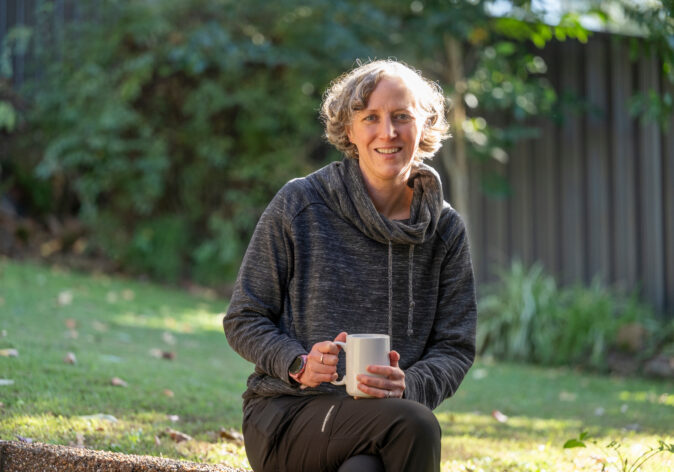SABCS 2020 Summary
The San Antonio Breast Cancer Symposium 2020 (SABCS 2020) is one of the most important breast cancer conferences in the world and brings together the world’s leading breast cancer researchers, including those from Breast Cancer Trials.
The conference is attended by a broad international audience of academic and private researchers and physicians from more than 90 countries. It aims to host a balance of clinical, translational and laboratory research, providing a forum for interaction, communication, and education for a broad spectrum of researchers and health professionals.
This year’s conference went virtual and saw a number of clinically significant results presented that will help to inform the treatment of breast cancer in the clinic and guide further clinical trials. We have provided a summary of important results presented at SABCS 2020 below:
Updated monarchE Data Shows That The CDK4/6 Inhibitor Abemaciclib Continues To Improve Invasive Disease-Free Survival Among Patients With High Risk, Node Positive, HR+ HER2- Breast Cancer
New data from the monarchE clinical trial shows that adding the cyclin-dependent kinase (CDK) 4/6 inhibitor abemaciclib (Verzenio) to standard adjuvant endocrine therapy, continued to improve invasive disease-free survival among patients with high-risk, node-positive, early-stage, HR-positive (hormone receptor positive), HER2-negative (Human epidermal growth factor receptor 2) breast cancer.
The use of CDK4/6 inhibitors in breast cancer is increasing, with more clinical trials showing benefits from this emerging group of drugs. CDK4/6 inhibitors are a group of drugs that block proteins which stops certain processes involved in the ‘cell cycle’ that would otherwise cause cancer cells to grow and multiply.
These results are important as around 20 per cent of patients with HR positive breast cancer will be diagnosed with incurable metastatic breast cancer, either as their first diagnosis of breast cancer, or as a recurrence after early-stage breast cancer return. There is therefore a need to find new treatment options for these patients to prevent recurrence.
The new data from monarchE show that patients who received the CDK4/6 inhibitor abemaciclib (Verzenio) with adjuvant endocrine therapy, had a 28.7 per cent reduced risk of developing recurrent invasive disease compared to those who received endocrine therapy alone. The treatment had few additional side effects, and only 8% of patients stopped treatment due to those side effects. The researchers have said that more follow-up is required, however they are optimistic that these results could change how high recurrence-risk, HR positive, HER2 negative early breast cancer is treated.
Read more about these results here:
Some HR Positive Breast Cancer Patients Aged 65+ May Be Able To Avoid Radiation Therapy
10-year follow up of the PRIME II study has shown that patients aged 65 years or older could potentially safely avoid radiation therapy with no implications for their survival.
The clinical trial cohort were all aged 65 years or older and were diagnosed with HR positive breast cancer with low recurrence risk features after breast-conserving surgery. The trial compared patients who did not receive radiation therapy with those who did receive postoperative radiation therapy. All patients received endocrine therapy.
The study showed the rate of local recurrence (breast cancer returning), within the same breast, after 10 years was significantly higher in patients who did not receive radiation therapy compared with patients who did (9.8 per cent vs. 0.9 per cent). But while radiation therapy after surgery affected the risk of local recurrence, it did not have a significant impact on other relevant clinical outcomes.
After 10 years, patients who did not receive radiation therapy (vs those who did have radiation) had similar rates of distant metastasis (cancer which has spread from the breast) recurrence in the opposite breast, and overall survival (80.4 per cent vs. 81.0 per cent) as patients who did receive radiation therapy. Most deaths were due to reasons unrelated to breast cancer diagnosis or treatment.
The researchers involved in the study say that omitting postoperative radiation therapy did not compromise survival or increase the risk of distant metastasis. Based on their results, they believe that omitting radiation therapy after breast conserving surgery should be an option for older patients with localised, HR positive breast cancer who are receiving adjuvant hormone therapy and meet certain clinico-pathological criteria (low/intermediate grade, tumour size less than 3cm, axillary lymph node negative and surgical margins more than 1mm).
You can learn more about these results here:
Breast Cancer Trials is undertaking its own clinical trial investigating if some women aged 50 years or older with HR positive, HER2 negative early breast cancer can safely avoid radiation therapy and its associated side effects.
The EXPERT clinical trial uses a genomic test, called PAM50 assay, to identify women who have a low risk of breast cancer recurrence and aims to therefore find out if these patients can safely omit radiation therapy.
Long Term IBIS-II DCIS Follow Up: Anastrozole and Tamoxifen Both Prevent Breast Cancer In Postmenopausal Women
Long-term follow-up of the IBIS-II DCIS clinical trial has found that Anastrozole and Tamoxifen are both effective in preventing breast cancer and DCIS, providing more treatment options for postmenopausal women with pre-cancerous breast changes that could otherwise lead to breast cancer.
The results showed that the two drugs trialled in IBIS-II are similarly effective on preventing future DCIS or breast cancer over the 12 years of follow-up of the trial.
The IBIS-II DCIS trial aimed to find out if Tamoxifen or Anastrozole was better at preventing breast cancer or DCIS after prior surgical removal of DCIS in postmenopausal women. These two hormone blocking medications are effective in preventing breast cancer from returning, but the role in prevention after DCIS has been less clear. Tamoxifen is now available on the Pharmaceutical Benefits Scheme (PBS) as a preventative medication, but Anastrozole is not.
“An important part of the decision between Tamoxifen and Anastrozole is understanding the side effects, especially when taking them for preventative purposes,” said Breast Cancer Trials Medical Advisor and BCT Study Chair of IBIS-II Dr Nicholas Zdenkowski.
“This trial shows that both drugs are safe to take, with notable differences in the side effects. With
Tamoxifen, fewer fractures and strokes were seen. With Anastrozole, there was a lower rate of endometrial and ovarian cancer. This knowledge can assist with guiding patients towards which drug is more suitable for their personal circumstances. It is hoped that Anastrozole will be listed on the PBS for prevention purposes, given the favourable safety and effectiveness profile.”
2,980 women were recruited to the IBIS-II DCIS clinical trial worldwide, including 178 women at 24 institutions in Australia and New Zealand where the study was coordinated by Breast Cancer Trials.
Pregnancy After A Diagnosis Of Breast Cancer Appears Safe For Both Mothers And Babies
Women who have been diagnosed with breast cancer, and subsequently get pregnant, deliver healthy babies, and have no adverse effects on their long-term survival. Additionally, pregnancy after breast cancer was not associated with worse patient outcomes. Breast cancer patients who did get pregnant had a 44 percent reduced risk of death and a 27 percent reduced risk of disease recurrence compared with those who did not have a subsequent pregnancy.
This large meta-analysis of women diagnosed with breast cancer while at a childbearing age has shown that they are less likely than the general public to get pregnant and they face higher risk of complications such as preterm labour.
Compared with the general population, patients who had gone through a breast cancer diagnosis had a 60% reduced chance of having a pregnancy. The study showed that compared with women in the general population, women who had received a breast cancer diagnosis had a 50 per cent higher risk of having a baby with low birth weight; 16 percent higher risk of having a baby that was small for gestational age; 45 percent higher risk of preterm labour; and 14 percent higher risk of having a cesarean section.
This meta-analysis looked at 39 studies that identified women who became pregnant after their breast cancer diagnosis. The researchers looked at how many women had a pregnancy after their treatment, along with foetal and obstetrical outcomes, disease-free survival, and overall survival. In all, they looked at data on 114,573 breast cancer patients.
You can learn more about this research here:
First Results Of Breast Cancer Trials PENELOPE-B Clinical Trial Presented
The first analysis of the phase three PENELOPE-B trial was presented at SABCS 20. Unfortunately, the results presented at SABCS 20 did not show a difference in disease free survival at almost four years follow-up.
PENELOPE-B is an international clinical trial for women who have received neoadjuvant chemotherapy for HR positive and HER2 negative breast cancer. Only women who had some cancer remaining in the surgically removed breast tissue were eligible, because this indicates a higher than average risk of cancer returning.
PENELOPE-B was investigating if adding one year of treatment with the drug palbociclib (a CDK 4/6 inhibitor) to standard hormone therapy would benefit this group of patients. 1250 patients were recruited worldwide, with 90 being recruited in Australia and New Zealand by Breast Cancer Trials sites.
The results showed the addition of one year of palbociclib to this patient group did initially delay invasive disease, but the difference disappeared with longer follow-up. At an average follow-up of 43 months (almost four years), no invasive-disease-free survival difference was seen between the palbociclib arm and endocrine therapy-alone arm.
This means that this clinical trial does not support adding one year of palbociclib to endocrine therapy in this patient population. The researchers involved in this study say that long term follow up from all adjuvant CDK 4/6 inhibitor, including PENELOPE-B, studies should continue, due to the potential for late recurrences in HR-positive breast cancer.
You can learn more about this research here:
SABCS 2020: Palbociclib Did Not Improve Disease-Free Survival in PENELOPE-B Trial
RxPONDER Study Shows Postmenopausal Patients With Node-Positive Breast Cancer And A Low Recurrence Score May Be Able To Avoid Chemotherapy
The RxPONDER trial evaluated the benefit of chemotherapy in women with early-stage, HR positive, node-positive breast cancer. Results presented at SABCS 2020 show that many of these postmenopausal women may be able to safely skip adjuvant chemotherapy.
These findings are similar to that of the Breast Cancer Trials TAILORx clinical trial, which also sought to identify subsets of patients with node-negative disease who fare well with endocrine therapy alone. Both TAILORx and RxPONDER used the Oncotype DX test.
RxPONDER found that women with early-stage HR positive, HER2 negative breast cancer with one to three positive axillary lymph nodes and a 21 – gene recurrence score (Oncotype DX*) of 25 or less did not benefit when chemotherapy was added to endocrine therapy. Therefore, these patients can safely avoid chemotherapy. However, pre-menopausal women in this patient group did benefit from adding chemotherapy to their treatment.
*The 21-gene recurrence score is available in Australia but is not publicly funded.
Other Breast Cancer Trials Results
- Breast Cancer Trials researcher and Board Director, Professor Sherene Loi was awarded the prestigious AACR (American Association for Cancer Research) Outstanding Investigator Award for Breast Cancer Research. This award recognises a scientist whose novel and significant work has had or may have a far-reaching impact on the etiology, detection, diagnosis, treatment, or prevention of breast cancer. You can read more about Professor Loi’s AACR award lecture on using genomics to better understand the breast cancer microenvironment here.
- The PALLAS clinical trial results were presented in a poster session at SABCS 2020. The poster session at a conference allows researchers to present their results to all conference attendees. The PALLAS poster presentation showed that persistence with palbociclib for the full two years of protocol defined therapy did not improve disease free survival compared with those who stopped treatment early for any reason. You can learn more about recent PALLAS results here.
- Results from the ALTTO trial were presented at SABCS 2020. ALTTO was an international phase III clinical trial of two targeted therapies for HER2-positive breast cancer. HER2 is expressed at high levels in up to 20 percent of all breast cancers. Tumors that overproduce HER2 are generally more aggressive and more likely to recur than those that do not. This adverse prognosis is improved substantially with trastuzumab. The medications being tested in ALTTO, lapatinib (Tykerb®) and trastuzumab (Herceptin®), target HER2 in different ways. Researchers sought to find out whether one drug is better than the other at helping women live longer without a recurrence of their disease, or if the two drugs work better together. The analysis presented at SABCS found that patients who experienced cancer relapse before 12 months from completion of adjuvant trastuzumab had worse survival compared with those whose cancer relapsed after the 12-month mark. Researchers say given its prognostic value, treatment free interval can help to individualize clinical recommendations and to design future trials in the metastatic setting for patients relapsing after prior exposure to anti-HER2 therapy for early disease.
- Results from the APHINITY clinical trial were presented in a poster spotlight discussion. With 45 months follow up, a trend towards greater benefit from adjuvant pertuzumab was seen in patients with HER2 positive breast cancer with a single activating HER2 pathway compared with those with multiple cancer activating pathways. Researchers say that with further research, this trend could offer HER2+ breast cancer patients and their doctors information at the beginning of their journeys that could help them define the path ahead.
Other SABCS 2020 News
- In the final analysis of the SOLAR-1 clinical trial, biomarker analysis showed that patients with circulating tumour DNA had superior progression free survival with alpelisib and fulvestrant vs placebo and fulvestrant (11 vs 3.6m). This provides further rationale for the Breast Cancer Trials CAPTURE trial.
- Results from the BYLIEVE study presented showed patients whose cancer had progressed on fulvestrant and CDK4/6i, and who had a tumour PIK3CA mutation, were given letrozole with alpelisib. The study met its primary endpoint, with 46% of patients alive without progressive disease at 6 months.
- An interesting debate took place at SABCS, on whether all breast cancer patients should receive genetic testing for an inherited predisposition to breast cancer. Two expert clinical scientists discussed the benefits and the potential drawbacks of universal genetic testing. You can read more about the pros and cons presented at this virtual debate here.
- Mary-Claire King, PhD, who linked the BRCA1 gene mutations with breast and ovarian cancers in the early 1990s, presented a lecture calling for universal genetic testing for BRCA1/2 gene mutations. This may be of interest to anyone interested in our BRCA-P clinical trial. Read more about her lecture here.
Support Us
Help us to change lives through breast cancer clinical trials research



